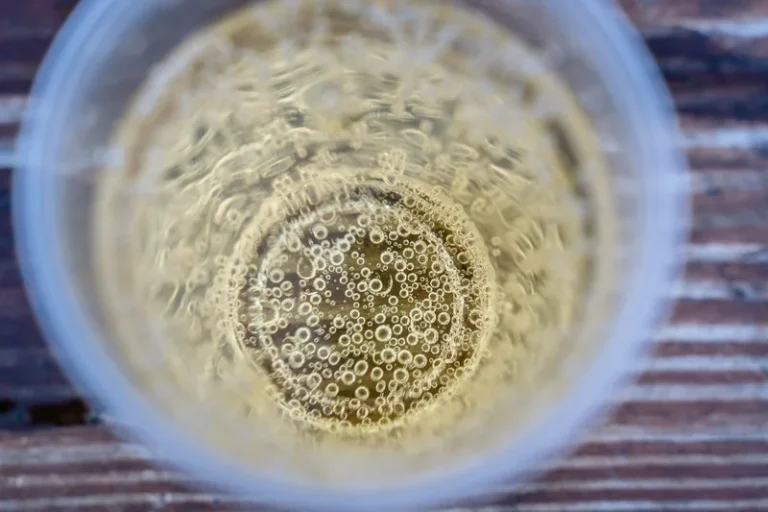Opinions changed, and one reason for this was that it became known that non-spirituous liquors did indeed contain alcohol, only at a lesser volume. You could get drunk on any of it, and so you have to abstain from all of it. If such a solution based treatment & detox term had been coined by one man during one speech, then we could not expect to see it appearing much in print in the years directly following its coinage.
Stephen Morley was the editor of the “Mowbray Phoenix,” a teetotaler, a vegetarian, a believer in moral force. In Dublin, the Pioneer Total Abstinence Association of the Sacred Heart (Pioneers) was founded in 1898 by another priest, James Cullen. My poor wife runs teetotal salons in Chelsea on the strength of my name. The teetotal attitude of mind and the quarrels it aroused very properly disgusted Kingsley.
In other words, someone, or more than one person, may have referred to them as teetotalers, using a known word, and only later was it supposed that this came about because of the “T” written on the pledge rolls. Whether this is true, or whether the word came about independently at around the same time in Both England and U.S., the evidence cannot show. In other words, temperance began as a movement calling what is central nervous system depression for abstinence from hard liquors like whiskey, rum, gin, etc. Wine, beer, and cider were often accepted and even recommended as a good substitute for hard spirits.
Another quite silly, origin claim is that the “tee” started as “tea” and referred to drinking tea (or other beverages) instead of alcohol. More likely, teetotal was simply a misspelling of teetotal, which caused people to believe that it had something to do with tea. Members of temperance organizations sang songs, organized marches to shut down saloons or pass prohibition laws, circulated pamphlets about the cause, and gave speeches on the moral problems caused by drinking. Teetotalism was embraced by some religious groups and moral reformers as the answer to the problems of poverty, unemployment or work absenteeism, declining church attendance, crime, and domestic violence. It was encouraged among the working class, whereas moderation was more readily accepted among the upper classes, who could afford wine. So, a teetotaler wasn’t someone who “doesn’t drink” as much as it is someone who “doesn’t drink distilled spirits, or wine, or beer, or anything else.” You could still “practice temperance without being a teetotaler.
- In the 19th century, the Preston Temperance Society in England and, later, the American Temperance Union encouraged a pledge of abstinence from intoxicating liquor, as part of the temperance movement.
- Assembly of God, Baha’i, Christian Science, Islam, Jainism, The Church of Jesus Christ of Latter-day Saints (LDS. also known as the Mormon Church), Seventh-day Adventist Church, the Church of Christ, Sikhism, Salvation Army.
- Women formed their own Washingtonian chapters, Martha Washington societies, and called themselves “Marthas.” By the late 1840s, most Washingtonian chapters had stopped meeting owing to declining membership.
- Here, we can use evidence from the printed word after around 1830 to 1835.
- People often invent origin tales of this sort when somewhat archaic words are used, and then a similarity is noticed, such as the “T” meaning total and total abstinence pledgers being known as teetotalers.
Christianity
However, Dr. F. R. Lees says that Turner did not coin the term, but only applied it. Lees is a source of the “archaic usage” claim and says that Turner was using a term that had been in use in Ireland and Lancashire for a hundred years, and which could be found in the literature of England long before Turner used it. That teetotal was a long-established Lancashire term was backed up by other contemporaries. Although “to teetotal” (t total, t-total) simply means “to never drink,” it meant something more specific when it first came to be used.
“T” After Your Name
The Church of Jesus Christ of Latter-day Saints rejects alcohol based upon the Word of Wisdom.
From the early days of the mass temperance movement, total abstinence from alcohol was promoted by some advocates, such as Presbyterian clergyman Lyman Beecher, who published Six Sermons on the Nature, Occasions, Signs, Evils, and Remedy of Intemperance in 1827. By 1836, when the American national temperance convention formally endorsed total abstinence, many temperance societies had switched from promoting moderation to advocating for abstinence. By this time, membership in temperance societies had reached about 1.5 million in the United States. It was also estimated that about a quarter of a million individuals were practicing total abstinence.
The fellowship group for reformed alcoholics was founded in 1840 in Baltimore, Maryland, by six men seeking to help one another and others to maintain their sobriety. They recruited other people in their community, even non-alcoholics, and held regular meetings in which they shared their experiences with drinking and sobriety. Over time, the Washingtonians attracted as many as 600,000 members, with chapters throughout the United States. Notably, they welcomed many groups that other temperance societies excluded, including Roman Catholics and Black Americans. Women formed their own Washingtonian chapters, Martha Washington societies, and called themselves “Marthas.” By the late 1840s, most Washingtonian chapters had stopped meeting owing to declining membership. But that still doesn’t mean that the term was not used in England and that it was not already a known word.
Turner may have used the word teetotal often, helping it to become more widespread, or it may have already been in use by the temperance movement, and Turner helped to cement it. Instead, Turner was induced to sign the pledge and then later became a well-known temperance advocate and speaker, who probably made many impassioned speeches. It is sometimes claimed that he put the “tee” at the beginning for the general reason described above, as emphasis. Still another claim is that Turner didn’t invent the word, but that it was an archaic word from the Lancashire dialect. Uniformed members of the Salvation Army (“soldiers” and “officers”) make a promise on joining the movement to observe lifelong abstinence from alcohol.
Where Does the Word ‘Teetotaler’ Come From? And More Questions From Our Readers
There are several common origin stories, which I will report here along with some speculation as to the credibility to each one. I make no claims to knowing the exact origin of the word, and one or more of these stories may have some truth in them. The term was in use as early as 1836 when an explanation of it as meaning “total abstainer” appeared in print.
People often invent origin tales of this sort when somewhat archaic words are used, and then a similarity is noticed, such as the “T” meaning total and total abstinence pledgers being known as teetotalers. Teetotalers in the 19th century who belonged to temperance societies typically signed a pledge promising to abstain from alcohol. Some societies also issued a pledge card that featured the member’s name, the date of the pledge, and other details, such as the name and logo of the temperance society or illustrations depicting the miseries of drinking compared with the happiness of sobriety. It is not known exactly when, why, and where this movement first began, but most early histories do indeed seem to place the first “teetotal society” in Preston, in 1832. The Preston society did begin using a total abstinence pledge in 1832 and it did become known as the teetotal pledge.
Instead, the word “teetotal” or “tee-total” appears in a great many publications from 1830 onward. Indeed, as early as 1830, and probably before, temperance societies were known as “teetotal societies.” What’s more, the word appears in American printed publications almost as often as British publications and also appears in Irish ones. This is not the speech in which Turner is said to have coined the term. The fact Turner mentions signing the “teetotal pledge” rather than the “total pledge” suggests that it was a more or less accepted way of describing the pledge, and using the word may not support the idea that he had coined the word by an accidental stutter. Although the temperance movement died out in the United States in the early 20th century with the failure of Prohibition, alcohol abstinence was the foundation for a new movement focused on recovery from addiction.
Alcoholics Anonymous (AA), founded in 1935 in Akron, Ohio, developed as a fellowship james anderson author group for alcoholics seeking recovery through total abstinence. The basis of AA was the Twelve Steps program, which outlines the group’s principles and methods for recovery. According to a publication by the Centennial Temperance Conference (CTC) of Philadelphia in 1885, “One Hundred Years of Temperance,” though, there was an American society that used a total abstinence pledge as early as 1826 and used the word “Teetotal” as early as 1827.
From there, the term came to be used more generally, for anyone who voluntarily committed to abstinence, or simply for a nondrinker. They listened to some foolish women’s cackle—teetotal cant, I call it—and refused me anything. A friend of his had been dining with a man who was both a teetotaler and a non-smoker.















